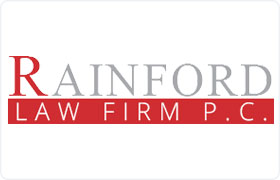Lilburn Reorganization Lawyer, Georgia
Sponsored Law Firm
-
 x
x

Click For More Info:
-
Rainford Law Firm P.C.
4920 N Henry Blvd. Stockbridge, GA 30281» view mapBankruptcy & Debt Law Experienced Bankruptcy & Debt Lawyer
Regardless of your situation, Attorney Chalcia Rainford is more than happy to guide you in the direction that will be most beneficial for you!
800-632-9140
Karen King
✓ VERIFIEDBankruptcy & Debt, Bankruptcy, Collection, Credit & Debt, Reorganization
We have helped thousands of clients avoid home foreclosure, car repossession and reduce their other debts. Our experienced team fully understands the... (more)
Christopher Phillips
Workout, Reorganization, Credit & Debt, Commercial Bankruptcy
Status: In Good Standing
W. Calvin Bomar
Estate Planning, Corporate, Business Organization, Reorganization
Status: In Good Standing
FREE CONSULTATION
CONTACTJeff Field
Bankruptcy & Debt, Consumer Bankruptcy, Credit & Debt, Reorganization
Status: In Good Standing Licensed: 40 Years
FREE CONSULTATION
CONTACTThomas J. Reichard
Reorganization, Bankruptcy, Bankruptcy & Debt
Status: In Good Standing Licensed: 28 Years
Craig B. Lefkoff
Litigation, Reorganization, Bankruptcy, Bankruptcy & Debt
Status: In Good Standing Licensed: 40 Years
Philip Lindsey Rubin
Litigation, Reorganization, Bankruptcy, Bankruptcy & Debt
Status: In Good Standing Licensed: 29 Years
Steven Scott Heinrichs
Litigation, Transportation & Shipping, Antitrust, Reorganization
Status: In Good Standing Licensed: 31 Years
Sharon K. Kacmarcik
Reorganization, Credit & Debt, Commercial Bankruptcy, Bankruptcy Litigation
Status: In Good Standing Licensed: 33 Years
 Chalcia Rainford Stockbridge, GA
Chalcia Rainford Stockbridge, GA AboutRainford Law Firm P.C.
AboutRainford Law Firm P.C. Practice AreasExpertise
Practice AreasExpertise

